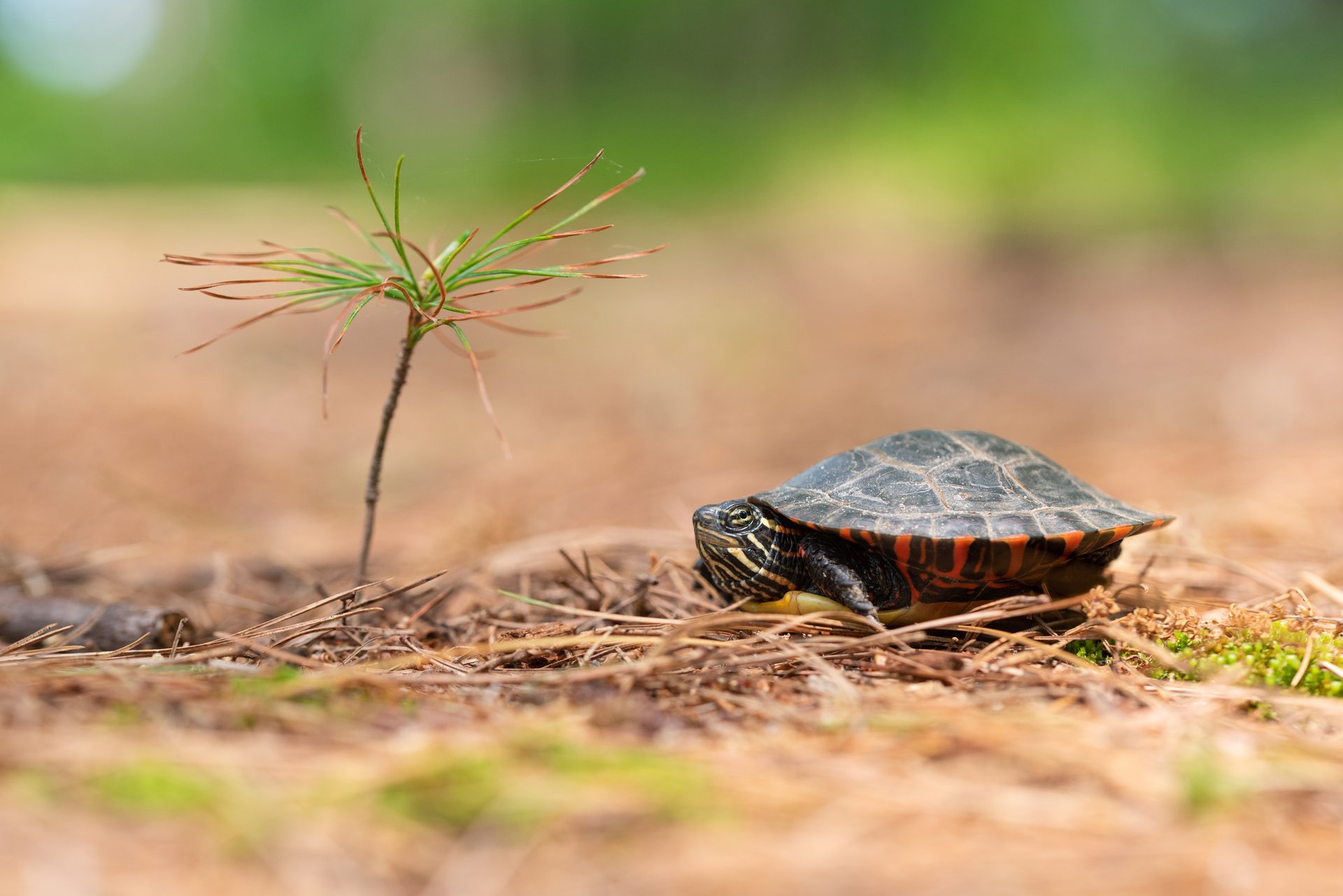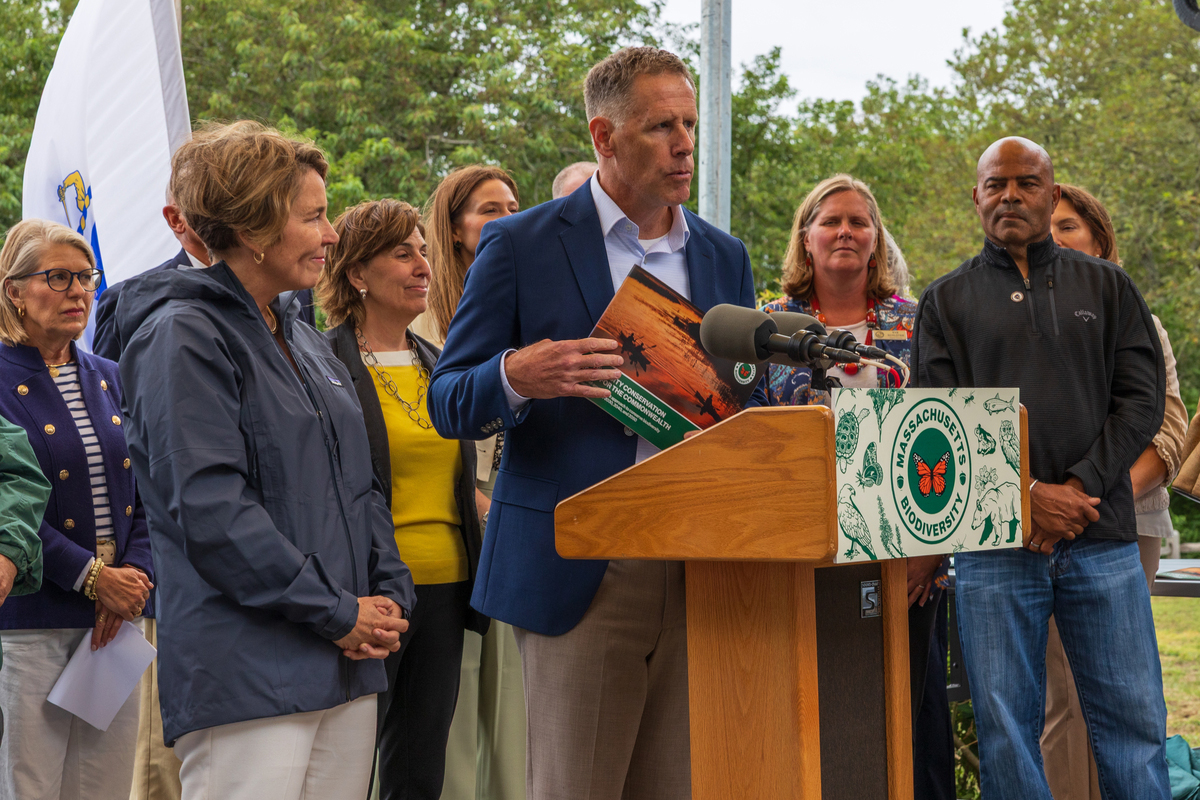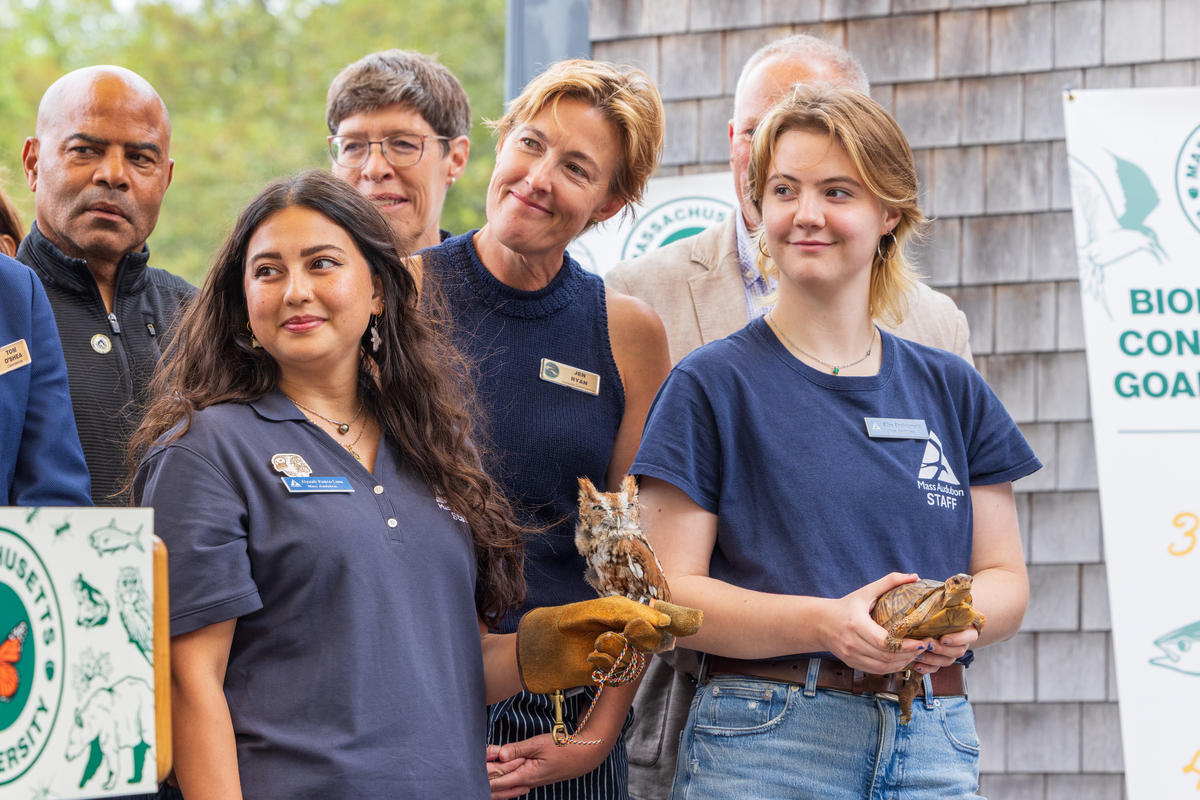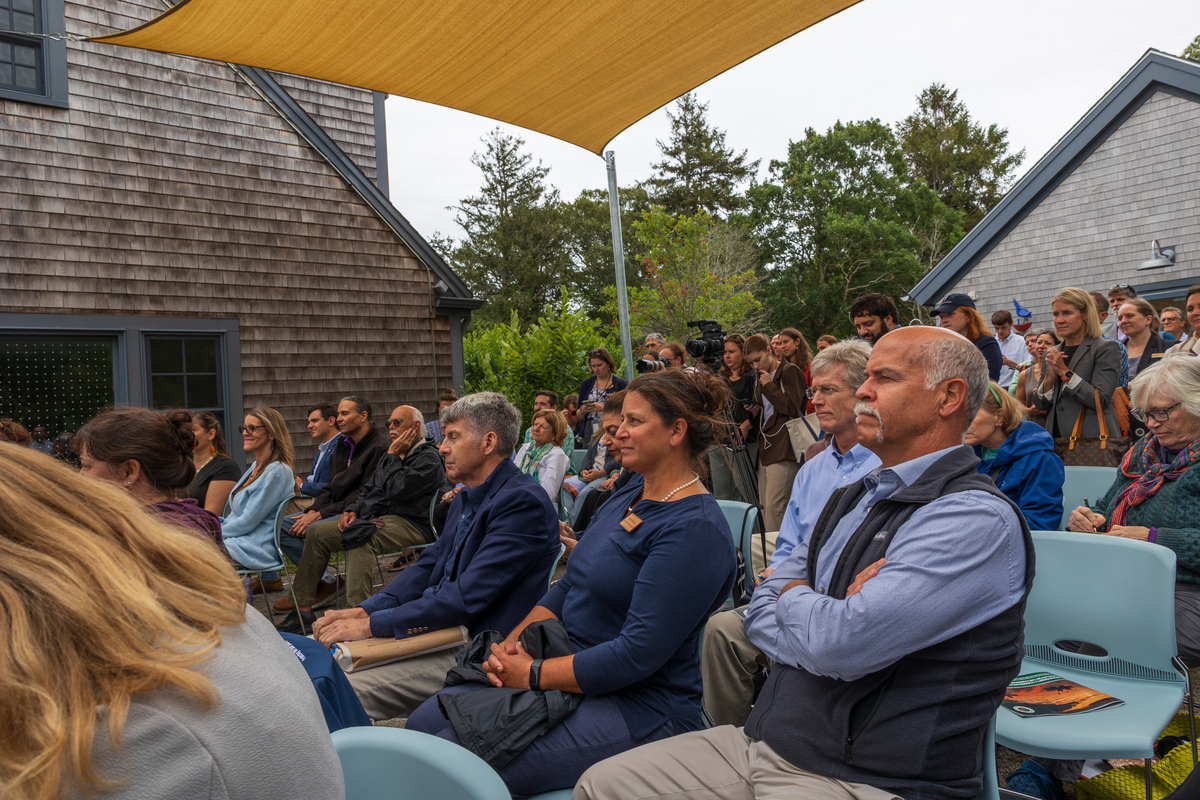Latest News
Mass Audubon Makes $5 Million Commitment to Help Advance Historic State Biodiversity Goals
August 22, 2025
More than 200 conservation partners gathered at Mass Audubon’s scenic Long Pasture Wildlife Sanctuary in front of Barnstable Harbor and Barnstable Great Marsh yesterday to celebrate Governor Maura Healey’s first-in-the-nation Biodiversity Goals.
Healey, along with Energy and Environmental Affairs Secretary Rebecca Tepper, and Department of Fish & Game Commissioner Tom O’Shea, officially unveiled the 25-year landmark plan to restore nature across the Commonwealth to roaring applause from hundreds of conservation and environmental advocates in attendance.
The conservation community turned out in force with representatives from Mass Audubon, The Nature Conservancy, The Trustees of Reservations, Conservation Law Foundation, Mount Grace Land Conservation Trust, Eastie Farm Climate Corps, New England Aquarium, Appalachian Mountain Club, Manomet, Wildlands Trust, Environment League Massachusetts, Mass Land Trust Coalition, Massachusetts Rivers Alliance, Woods Hole Oceanographic Institution, the Norcross Wildlife Sanctuary, and many others all joining and pledging support.
Mass Audubon believes so strongly in this work that we even announced a $5 million commitment to help meet the new Biodiversity Goals.
"Governor Healey’s announcement represents an historic, best-in-nation commitment to protecting biodiversity, connecting people to nature, and addressing our climate crisis," said David O’Neill, President & CEO of Mass Audubon. "Our $5 million commitment to Governor Healey’s initiative will help restore and protect our ecosystems that have the potential to contribute billions as part of an emerging Nature Climate Tech Economy."
Setting the Scene for Biodiversity
One of the most effective ways to remind people what they’re working to protect is to show them, and the Long Pasture Wildlife Sanctuary in Barnstable was the perfect backdrop. The area is home to horseshoe crabs, snails, clams, migrating sea turtles in the fall, and all manner of other species that reside there.
The Barnstable Great Marsh is adjacent to the property. This is the largest salt marsh on the Cape at 4,000 acres and as such it is a vital ecosystem that stores massive amounts of carbon, serves as a natural buffer for flooding, and helps keep drinking water clean. Joining the festivities were an Eastern-screech owl and Box Turtle from Mass Audubon’s Blue Hills Trailside Museum in Milton.
New Biodiversity Goals Are Set
The Biodiversity Goals report outlines the alarming biodiversity losses we’ve experienced across the state over the last few decades and then lays out a roadmap to halt and reverse species decline and improve the condition of our ecosystems.
The plan calls for doubling the pace of land protection to conserve 40 percent of our state by 2050, accelerating the pace of ecological restoration to bring more than 75 percent of the most important habitats for species back to health, removing at least 10 percent of dams and upgrading 1,250+ culverts for fish and wildlife passage, restoring degraded salt marshes and marine habitats, implementing dedicated funding mechanisms to support farms and local food services, boosting food security with wild foods, and launching a Local Biodiversity Grant Program to fund efforts at the community level to promote conservation and nature education.
"Our lands, waters, and wildlife are at the heart of what makes Massachusetts so special. They shape our identity, drive our economy, promote public health and support the way of life we value," said Governor Healey. "Protecting them isn’t optional—it’s essential. This is Massachusetts’ opportunity to lead. Through partnership and innovation, we are ensuring that we stay competitive, attract new talent and create a strong future for our residents."
Mass Audubon & Partners Already Making Progress
Mass Audubon and land trust partners and the State have been making enormous land conservation progress the last few years.
Working with partners, Mass Audubon recently exceeded its five-year goal of protecting 10,000 acres it set in 2021, reaching 10,992 acres a year early. The launch of its $75 million 30x30 Catalyst Fund, seeded by a transformative $25 million donation from MathWorks, quadrupled Mass Audubon’s rate of annual land conservation and allowed the organization to purchase new wildlife sanctuaries, assist local land trusts with capital for purchases, and buy conservation restrictions to protect and manage thousands of acres in perpetuity.
Mass Audubon is a lead partner in the Nature for Massachusetts Coalition, made up of more than 50 nonprofits and conservation organizations, with a goal of supporting legislation that would create a dedicated funding source for conservation. An Act Providing Nature for All is a bill that would create a permanent fund for the purposes of acquisition, restoration, or improvement of nature to create parks and trails; protect forests, farms, wildlife habitat, and water resources; and advance climate resiliency and environmental justice goals.
By setting aside just a portion of the revenue generated from the existing sporting goods sales tax, the state would be able to reallocate as much as $100 million every year for the Nature for All Fund without any increase in taxes.
A Good Start But a Long Road Ahead
Setting Biodiversity Goals and prioritizing nature at the state and local levels is cause for celebration, but it’s truly just the beginning. Only by tackling this project side-by-side with the Commonwealth and our conservation partners in a spirit of collaboration can the effects of climate change and biodiversity loss be mitigated and ultimately reversed.
Here in the Bay State, we’re all up for the challenge. Together.
Stay Connected
Don't miss a beat on all the ways you can get outdoors, celebrate nature, and get involved.






